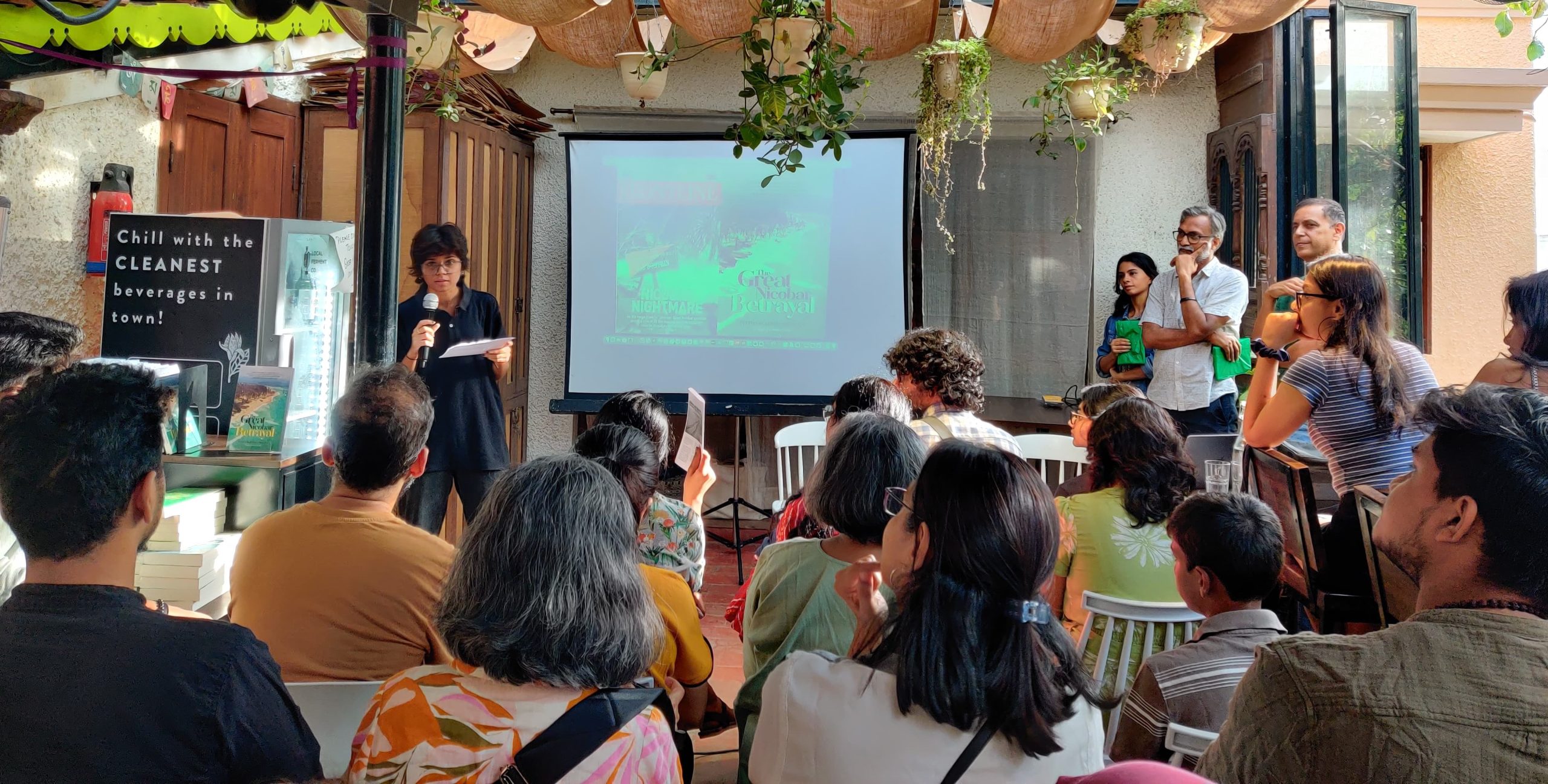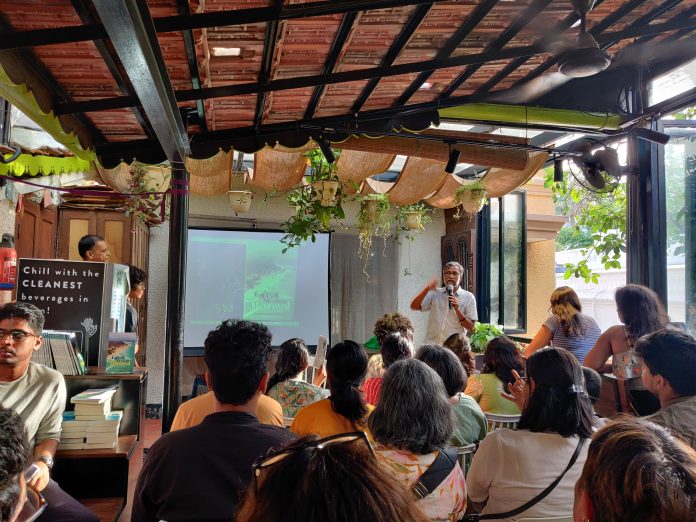– Sajida A Zubair
Bengaluru, June 11: “The Great Nicobar Betrayal,” curated by Dr. Pankaj Sekhsaria, renowned author and environmental advocate, was launched at an engaging event at the Champaca Bookstore. The book release was followed by an insightful discussion featuring prominent journalist and author Samar Halarnkar.
Dr. Sekhsaria, who has authored and edited six books on the Andaman and Nicobar Islands, draws on over two decades of experience covering the region. “The Great Nicobar Betrayal” is a compilation of articles written by various experts. It analyzes and thoroughly explores the significant and rapid developments surrounding a controversial mega infrastructure project on Great Nicobar Island, examining the environmental, social, and cultural ramifications.
The Rs.72,000 crore project, known as the “Holistic Development of Great Nicobar Island,” encompasses the construction of a transshipment port at Galathea Bay on the island’s southeastern coast, an international airport, a power plant, and a greenfield township spanning over 160 square kilometers, including 130 sq km of primary forest. The island, which covers just over 900 sq km, has approximately 850 sq km designated as a tribal reserve under the Andaman and Nicobar Protection of Aboriginal Tribes Regulation, 1956. Moreover, Great Nicobar was declared a biosphere reserve in 1989 and was included in UNESCO’s Man and Biosphere Programme in 2013 due to its rich ecological diversity.
The project’s completion over the next 30 years is anticipated to increase Great Nicobar Island’s population by more than 300,000 people, a significant rise from its current 8,000 residents, representing a 4,000 percent surge. This population boom is akin to the entire population of the Andaman and Nicobar Islands combined. Additionally, the development will necessitate the felling of nearly a million trees, posing a substantial threat to the largely pristine rainforest ecosystem.
Dr. Sekhsaria explained, “Since we started the process of mapping this, in October 2020 there was an application for the forest clearance for these 160 sq km, and in this forest clearance process, in two years, a total of 26 meetings were held by this project committee. We checked everything; not one meeting agenda had this project listed and not the minutes of a single meeting discussed that the project was brought onto the table, and yet the project was cleared. In legal terms, it’s a serious violation.”
Dr. Sekhsaria conveyed his surprise at the committee’s decision to clear 130 square kilometers of forests in the Nicobars and compensate for this by allocating 260 square kilometers in Haryana. He emphasized that this book serves as a plea to preserve a significant and picturesque region of India.
 The book is a vital addition to environmental literature, aiming to raise awareness and stimulate thoughtful discussion about the future of Great Nicobar Island and other ecological treasures around the globe. According to Samar Halarnkar, Founder Editor of Article-14, “This is a book of seminal importance, meticulously revealing how far-reaching legal changes and political decisions could lead to potentially cataclysmic effects in some of India’s most pristine ecosystems. The Great Nicobar Betrayal alerts us to the possibility that their treasures may be gone forever if we do not act now.”
The book is a vital addition to environmental literature, aiming to raise awareness and stimulate thoughtful discussion about the future of Great Nicobar Island and other ecological treasures around the globe. According to Samar Halarnkar, Founder Editor of Article-14, “This is a book of seminal importance, meticulously revealing how far-reaching legal changes and political decisions could lead to potentially cataclysmic effects in some of India’s most pristine ecosystems. The Great Nicobar Betrayal alerts us to the possibility that their treasures may be gone forever if we do not act now.”
Dr. Sekhsaria’s meticulous research and impassioned advocacy highlight the potential environmental, social, and cultural consequences of such massive undertakings. As voices like his continue to raise awareness and call for action, it becomes increasingly evident that the preservation of Great Nicobar’s unique ecosystem is not just a local concern but a global imperative. Through thoughtful dialogue and informed decision-making, there remains hope that the island’s natural treasures can be safeguarded for future generations.




